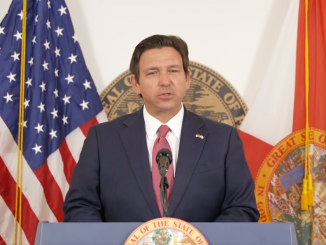
Published July 22, 2025
Establishment Democrats Reportedly Scrambling to Halt Socialist Lawmaker’s Rise
A growing political rift is emerging within the Democratic Party as insiders reportedly seek ways to block the advancement of a New York assemblyman whose far-left positions have alarmed traditional party leaders.
The controversy surrounds Zohran Mamdani, a state assembly member known for his alignment with the Democratic Socialists of America (DSA). According to internal discussions, establishment Democrats are concerned that Mamdani’s outspoken criticism of Israel and his calls for cutting U.S. military aid have alienated moderate voters and sparked backlash among donors.
Sources familiar with recent strategy meetings indicate that key figures within the party are quietly coordinating efforts to limit Mamdani’s influence. Among the reported concerns are his public support for the BDS movement (Boycott, Divestment, and Sanctions) against Israel, and his endorsement of “anti-imperialist” policies that some Democrats worry could damage the party’s broader electoral prospects.
Mamdani, who represents parts of Queens, has drawn national attention for his vocal criticism of U.S. foreign policy and his solidarity with pro-Palestinian activists. His recent remarks following unrest in the Middle East — where he referred to Israel’s actions as “apartheid” and called for a reevaluation of America’s role in the region — have intensified the internal party divide.
In response, some Democratic strategists are reportedly discussing primary challenges and changes in campaign funding priorities to isolate Mamdani and similar figures. The goal, according to those familiar with the plans, is to reassert control over the party’s message heading into the 2026 election cycle.
Despite the pressure, Mamdani appears undeterred. In recent public appearances and interviews, he has doubled down on his message, insisting that the Democratic Party must reckon with what he calls “decades of complicity in imperialism.” Supporters argue that Mamdani reflects the views of a younger, more progressive electorate increasingly disillusioned with centrist politics.
The unfolding drama underscores the Democratic Party’s ongoing identity struggle — balancing a growing progressive wing with a traditional base wary of alienating swing voters. As the 2026 elections approach, this internal battle could play a decisive role in shaping the party’s direction.
 Resulting Effects:
Resulting Effects:
Here are the resulting effects from the situation described in the article, broken down into political, strategic, and public perception outcomes:
🔹 Political Effects
-
Increased Party Division
The attempt to sideline Zohran Mamdani intensifies the growing rift between establishment Democrats and the progressive wing, especially among members aligned with the Democratic Socialists of America (DSA). -
Empowerment of the Progressive Base
Efforts to suppress Mamdani’s rise could energize his supporters, who may see him as a victim of political gatekeeping. This could result in higher voter engagement among younger, left-leaning constituents. -
Potential Primary Battles
If party insiders back primary challengers to Mamdani and similar candidates, it could trigger bitter intra-party contests, weakening Democratic unity in swing districts.
🔹 Strategic Effects
-
Funding and Endorsement Shifts
Major Democratic donors and PACs might withhold support from candidates like Mamdani, redirecting funds to moderates. This may create financial disadvantages for progressives in competitive races. -
Candidate Vetting Changes
The party may introduce stricter vetting or background checks to prevent more outspoken or controversial figures from gaining official backing in future primaries. -
Policy Realignment Pressure
Progressive lawmakers might be pressured to tone down positions on foreign policy and military aid to avoid internal backlash, potentially shifting their focus to safer domestic issues like housing or healthcare.
🔹 Public Perception Effects
-
Perceived Censorship of Dissent
The establishment’s actions may be seen as suppressing free speech or grassroots movements, potentially driving independent or disaffected voters away from the Democratic Party. -
Media Amplification of Infighting
As the conflict becomes more visible, media coverage may portray the party as fractured and disorganized, providing ammunition to political opponents in both parties. -
Polarization Within Voter Base
Supporters of Mamdani may become more radicalized or skeptical of traditional party structures, while centrists may push for greater ideological control to maintain electoral viability.
 Bottom Line:
Bottom Line:
The growing conflict between establishment Democrats and rising progressive figures like Zohran Mamdani highlights a deepening ideological divide within the Democratic Party. As traditional leaders move to curb voices they view as politically risky, they risk alienating a younger, more activist base that demands bolder stances on foreign policy, human rights, and economic justice.
While the effort to contain Mamdani may provide short-term control over party messaging, it also reveals a broader struggle over the party’s future direction. Whether this internal power struggle leads to renewal or rupture remains to be seen — but one thing is clear: the battle lines between the party’s past and its possible future are being drawn more sharply than ever.





Be the first to comment